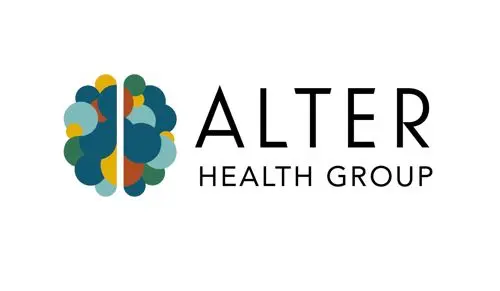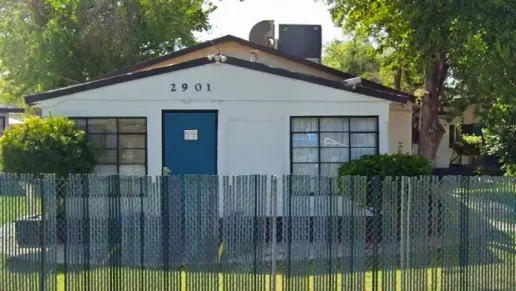I entered Cycles of Change thinking the only problem I had was with abusing drugs and alcohol. But really I had no idea how to live life sober until I started working with my counselor. Which was the next day. The staff are extremely hands on with every client. I was shocke ...
About Cycles of Change Recovery Services – Lancaster
Cycles of Change Recovery Services - Lancaster is a drug rehab facility in Lancaster, California. The center offers treatment for substance use disorder, alcohol use disorder, opioid addiction, chemical dependencies, and co-occurring mental and behavioral health disorders. Cycles of Change Recovery Services provides medication-assisted treatment (MAT), inpatient treatment, partial hospitalization programs (PHPs), intensive outpatient programs (IOPs), dual diagnosis, 12 Step programs, case management, residential care, and aftercare for adults.
At Cycles of Change Recovery Services, clients receive a personalized evaluation and customized treatment. Detox can include the use of buprenorphine and naltrexone, including Suboxone and Vivitrol. Treatment also includes individual counseling, group therapy, and 24/7 monitoring in their residential facility. MAT can last 3-10 days.
Clients stay in residential inpatient for a minimum of 30 days and a maximum of six months. The case management team provides a customized plan that includes therapy, counseling, group activities, recreational and outdoors therapy, spiritual wellness, access to the gym, nutritional guidelines, and emotional resilience training. Medication supervision and management is also provided to promote sobriety.
Partial hospitalization at Cycles of Change Recovery Services includes an all-day program with supervision and medical treatment. Clients receive group and individual therapy, like skills development, periodic drug testing, and education workshops to prevent relapse. Biosound therapy, psychodrama, and cognitive behavioral therapy (CBT) strategies are available. Clients return home at night as they transition into sobriety.
Cycles of Change Recovery Services offers intensive outpatient care for more than 9 hours per week for adults. IOP consists of day or evening sessions and may include holistic therapy, family therapy, yoga. and medication. Treatment can include group and individual counseling, 12 Step programs, substance abuse education, and relapse management. IOP offers supervision and support 24/7.
At the residential care home, clients undergo group counseling and periodic evaluations as they continue their daily living routines. The center includes community spaces, volleyball courts, backyard barbeque space, and furnished rooms. Curfews and chores are required throughout the recovery process, which can take up to a year.
Upon completion of their program, clients continue to receive care and support. Cycles of Change Recovery Services enrolls clients into an alumni association for continual group support, workshops, and events.
Cycles of Change Recovery Services is accredited by the Joint Commission.
Cycles of Change Recovery Services is in-network with Aetna, Anthem Blue Cross, Cigna, Humana, Kaiser Permanente, MultiPlan, and United Healthcare. The center also offers self-pay and financing options. Please check with your insurance provider for specific details concerning out-of-network benefits.
Rehab Score
Gallery
Accepted Insurance
Other Forms of Payment
Self-pay involves paying for treatment out of your own pocket. You can use savings or credit, get a personal loan, or receive help from family and friends to fund your treatment. If you don't have insurance or your insurance plan doesn't cover a specific program, self-pay can help ensure you still get the care you need.
Private insurance refers to any kind of healthcare coverage that isn't from the state or federal government. This includes individual and family plans offered by an employer or purchased from the Insurance Marketplace. Every plan will have different requirements and out of pocket costs so be sure to get the full details before you start treatment.
Addiction Treatments
Levels of Care
Treatments
The goal of treatment for alcoholism is abstinence. Those with poor social support, poor motivation, or psychiatric disorders tend to relapse within a few years of treatment. For these people, success is measured by longer periods of abstinence, reduced use of alcohol, better health, and improved social functioning. Recovery and Maintenance are usually based on 12 step programs and AA meetings.
Drug rehab in California teaches participants constructive ways to stay clean and sober. Treatment revolves around helping individuals stop using the substance they are addicted to and learn healthy habits to avoid relapse.
Many of those suffering from addiction also suffer from mental or emotional illnesses like schizophrenia, bipolar disorder, depression, or anxiety disorders. Rehab and other substance abuse facilities treating those with a dual diagnosis or co-occurring disorder administer psychiatric treatment to address the person's mental health issue in addition to drug and alcohol rehabilitation.
A combined mental health and substance abuse rehab has the staff and resources available to handle individuals with both mental health and substance abuse issues. It can be challenging to determine where a specific symptom stems from (a mental health issue or an issue related to substance abuse), so mental health and substance abuse professionals are helpful in detangling symptoms and keeping treatment on track.
Opioid rehabs specialize in supporting those recovering from opioid addiction. They treat those suffering from addiction to illegal opioids like heroin, as well as prescription drugs like oxycodone. These centers typically combine both physical as well as mental and emotional support to help stop addiction. Physical support often includes medical detox and subsequent medical support (including medication), and mental support includes in-depth therapy to address the underlying causes of addiction.
Programs


Clinical Services
Cognitive Behavioral Therapy (CBT) is a therapy modality that focuses on the relationship between one's thoughts, feelings, and behaviors. It is used to establish and allow for healthy responses to thoughts and feelings (instead of unhealthy responses, like using drugs or alcohol). CBT has been proven effective for recovering addicts of all kinds, and is used to strengthen a patient's own self-awareness and ability to self-regulate. CBT allows individuals to monitor their own emotional state, become more adept at communicating with others, and manage stress without needing to engage in substance abuse.
Whether a marriage or other committed relationship, an intimate partnership is one of the most important aspects of a person's life. Drug and alcohol addiction affects both members of a couple in deep and meaningful ways, as does rehab and recovery. Couples therapy and other couples-focused treatment programs are significant parts of exploring triggers of addiction, as well as learning how to build healthy patterns to support ongoing sobriety.
Creativity is inherently healing, and can help those in recovery express thoughts or feelings they might not otherwise be able to. Creative arts therapy can include music, poetry/writing, painting, sculpting, dance, theater, sandplay, and more. Unlike traditional art, the final product matters far less than the experience of creation and expression itself.
Dialectical Behavior Therapy (DBT) is a modified form of Cognitive Behavioral Therapy (CBT), a treatment designed to help people understand and ultimately affect the relationship between their thoughts, feelings, and behaviors. DBT is often used for individuals who struggle with self-harm behaviors, such as self-mutilation (cutting) and suicidal thoughts, urges, or attempts. It has been proven clinically effective for those who struggle with out-of-control emotions and mental health illnesses like Borderline Personality Disorder.
Experiential therapy is a form of therapy in which clients are encouraged to surface and work through subconscious issues by engaging in real-time experiences. Experiential therapy departs from traditional talk therapy by involving the body, and having clients engage in activities, movements, and physical and emotional expression. This can involve role-play or using props (which can include other people). Experiential therapy can help people process trauma, memories, and emotion quickly, deeply, and in a lasting fashion, leading to substantial and impactful healing.
EMDR is a therapeutic modality originally developed to help process trauma. In an EMDR session, a patient is prompted to undergo eye movements that mimic those of REM sleep. This is accomplished by watching a therapist's finger move back and forth across, or following a bar of light. The goal is repetitive sets of eye movements that help the brain reprocess memory, which can significantly reduce the intensity of remembered traumatic incidents. Associated memories can heal simultaneously, leaving patients significantly calmer, more stable, and more emotionally relaxed.
Group therapy is any therapeutic work that happens in a group (not one-on-one). There are a number of different group therapy modalities, including support groups, experiential therapy, psycho-education, and more. Group therapy involves treatment as well as processing interaction between group members.
In individual therapy, a patient meets one-on-one with a trained psychologist or counselor. Therapy is a pivotal part of effective substance abuse treatment, as it often covers root causes of addiction, including challenges faced by the patient in their social, family, and work/school life.
Motivational Interviewing (MI) is a clinical approach to helping people with substance abuse issues and other conditions shift behavior in positive ways. It is more goal-oriented than traditional psychotherapy, as MI counselors directly attempt to get clients to consider making behavioral change (rather than wait for them to come to conclusions themselves). Its primary purpose is to resolve ambivalence and help clients become able to make healthy choices freely.
Nutrition therapy, aka medical nutrition therapy (MNT), is a way of treating physical, emotional, and medical conditions through diet. Specific dietary plans are designed by professional nutritionists or registered dietitians, and patients follow them in order to positively affect their physical and mental health.
Amenities
-
Yoga Studio
-
Private Rooms
Accreditations

The Joint Commission, formerly known as JCAHO, is a nonprofit organization that accredits rehab organizations and programs. Founded in 1951, the Joint Commision's mission is to improve the quality of patient care and demonstrating the quality of patient care.
Joint Commission Accreditation: Yes

The National Association of Addiction Treatment Providers (NAATP) is a professional association that represents organizations in the field of addiction services. Founded in 1978, NAATP's mission is to advance addiction services and ensure that high-quality addiction treatment is available and accessible.
NAATP Member: Yes
Member ID: 1705

State Licenses are permits issued by government agencies that allow rehab organizations to conduct business legally within a certain geographical area. Typically, the kind of program a rehab facility offers, along with its physical location, determines which licenses are required to operate legally.
State License: California
Contact Information
42210 61st St West
Lancaster, CA 93536








